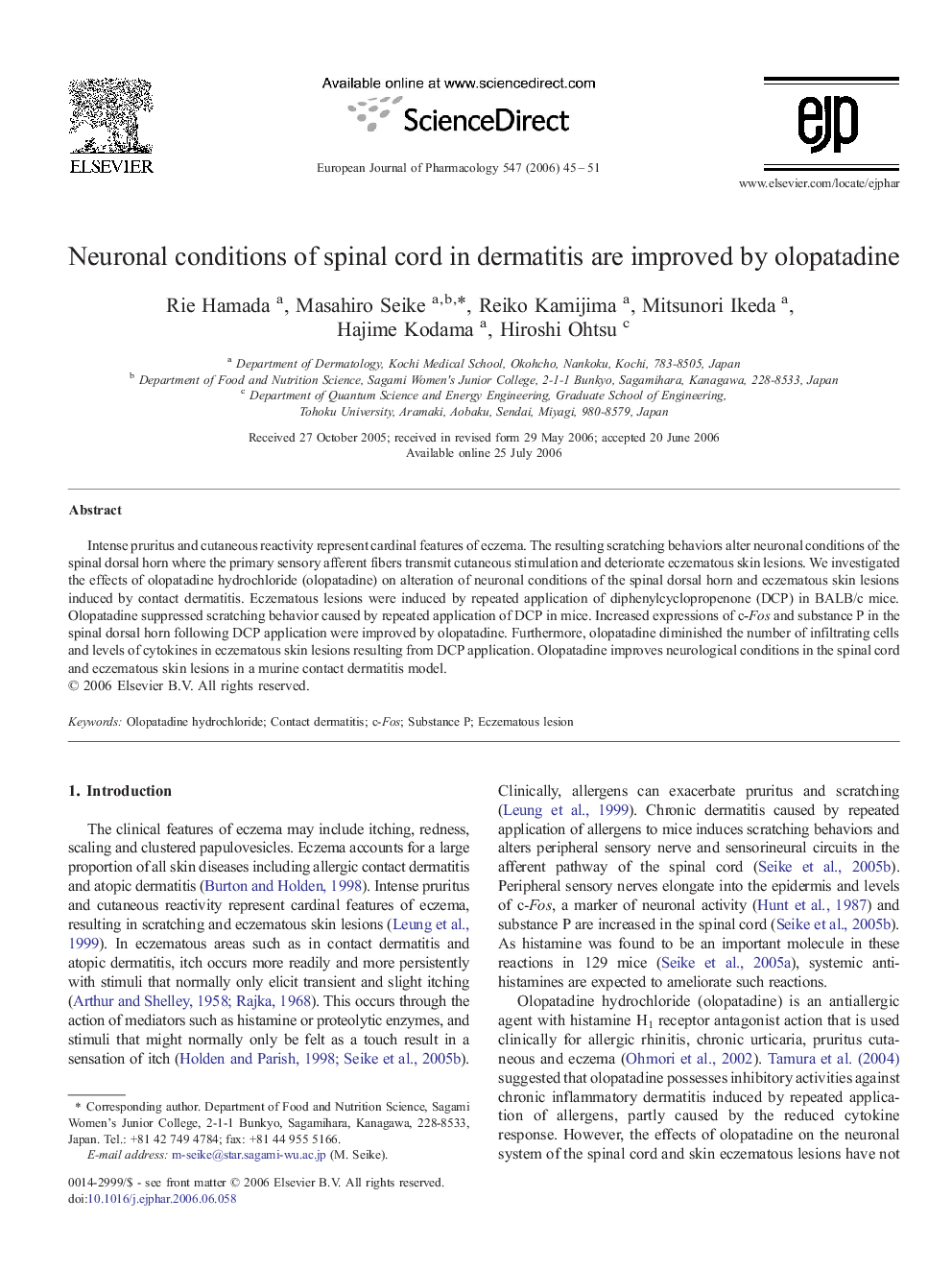| Article ID | Journal | Published Year | Pages | File Type |
|---|---|---|---|---|
| 2536845 | European Journal of Pharmacology | 2006 | 7 Pages |
Intense pruritus and cutaneous reactivity represent cardinal features of eczema. The resulting scratching behaviors alter neuronal conditions of the spinal dorsal horn where the primary sensory afferent fibers transmit cutaneous stimulation and deteriorate eczematous skin lesions. We investigated the effects of olopatadine hydrochloride (olopatadine) on alteration of neuronal conditions of the spinal dorsal horn and eczematous skin lesions induced by contact dermatitis. Eczematous lesions were induced by repeated application of diphenylcyclopropenone (DCP) in BALB/c mice. Olopatadine suppressed scratching behavior caused by repeated application of DCP in mice. Increased expressions of c-Fos and substance P in the spinal dorsal horn following DCP application were improved by olopatadine. Furthermore, olopatadine diminished the number of infiltrating cells and levels of cytokines in eczematous skin lesions resulting from DCP application. Olopatadine improves neurological conditions in the spinal cord and eczematous skin lesions in a murine contact dermatitis model.
